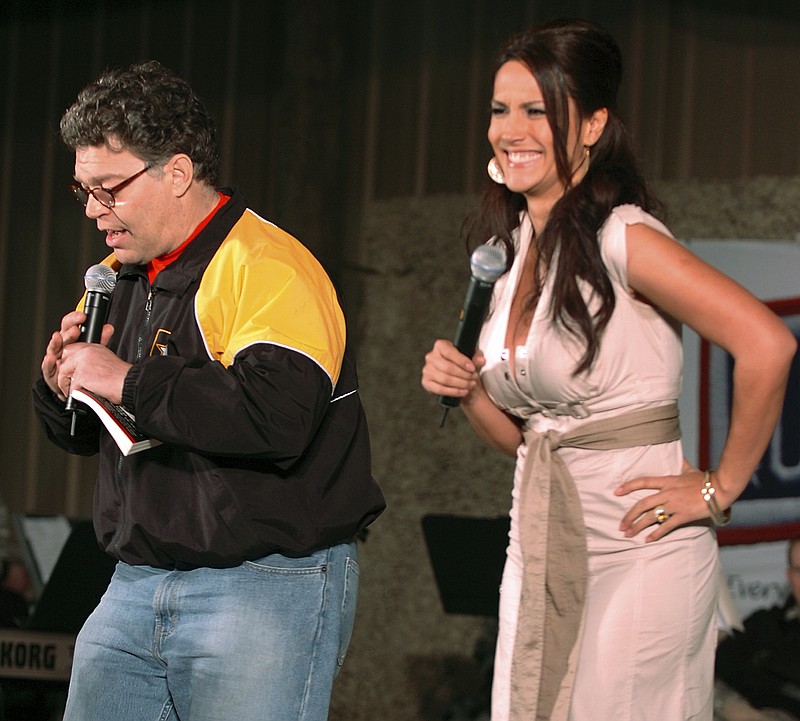WASHINGTON - The national debate over sexual harassment and sexual assault has reached an important and precarious moment as it shifts from what behavior is acceptable to what punishment is warranted. Having underreacted for too long, are we now at risk of overreacting?
The welcome news is that society seems to have reached closure - if not universal enlightenment, then broad consensus - on some of the most outmoded and tiresome aspects of the discussion. Behavior that was excused or diminished is now deemed unacceptable. Once-widespread skepticism about accusers' credibility - Did she invite this? Why did she wait so long to complain? - has yielded, mostly, to a more sophisticated understanding of the pressures on women to remain silent.
I witnessed, up close, the earlier chapters of this revolution - Anita Hill and Clarence Thomas in 1991, Monica Lewinsky and Bill Clinton in 1998. This time feels different. Consider how quickly Senate Republicans switched from if-then to "I believe the women" in the case of Alabama Republican Senate nominee Roy Moore. Contrast that with the refusal to credit Hill's allegations against Thomas. Different political imperatives, but also different times.
Sure, the current furor will recede; when it does, problems will persist. For women, going public with complaints will never be easy. And if law firm associates or Wall Street bankers now feel more empowered to speak up about harassment, what of waitresses or factory workers? Still, we are at a new moment in which the risks - for abusers in preying on women, and for employers in tacitly tolerating such conduct - have become greater than ever before.
That change is as big as it is belated. My 20-something daughters, if they ever find themselves in this uncomfortable spot, will face a less daunting calculus in speaking up than I did at their age. On this subject, the country may not be woke, but it is awakening.
Yet a perplexing aspect of the current debate involves the question of what should happen to those guilty of misbehavior and the tendency, common to revolutions, to overcorrect for past sins. If society once ignored sexual harassment - and we certainly did - one risk, now evident with the case of Minnesota Sen. Al Franken, is overcompensating for earlier apathy. The two dangers are not equivalent - ignoring sexual abuse and assault is far worse than punishing its perpetrators too severely.
Even so, not all crimes deserve the death penalty. Not all bad behavior warrants expulsion, firing or resignation. The clamor for Franken's head is, at best, premature. At worst, it is alarmingly extreme, absent evidence of a pattern or misbehavior in the Senate.
Let us stipulate: Al Franken behaved like a big, not-so-fat idiot. Under the guise of rehearsing for a skit, he allegedly kissed fellow USO performer Leeann Tweeden against her will, sticking his tongue in her mouth. He posed for a decidedly not funny photograph in which he appears to grope Tweeden's breasts while she is asleep. Not OK. But also not Roy Moore, Democratic version - or even Bill Clinton, 2017 edition. On the spectrum from predatory to boorish, Moore and Clinton are on one end, Franken closer to the other.
Such context matters in the sentencing phase. This wasn't a workplace, exactly, and Franken, while the tour headliner, wasn't Tweeden's boss. Comedy doesn't justify assault or, as Louis C.K. taught, public masturbation, but it invites a more transgressive atmosphere than, say, the U.S. Senate.
So what should happen to Franken et al? The notion of the cleansing purge has its satisfactions, and for Democrats in Franken's case, the added appeal of excising a political liability.
Yet I recoil at the employment equivalent of a mass death sentence for all sexual harassers. For some offenders - Harvey Weinstein, Kevin Spacey and Roy Moore - I have no sympathy. Their alleged conduct is close to, if not across, the line of criminality.
Others pose a harder case. Must they remain forever pariahs? Is rehabilitation possible? The focus is, and should be, on victims. But as employers engage in an overdue reckoning on how to rid workplaces of intolerable conduct, they - we - are going to have to wrestle as well with how to treat the victimizers.
Washington Post Writers Group

